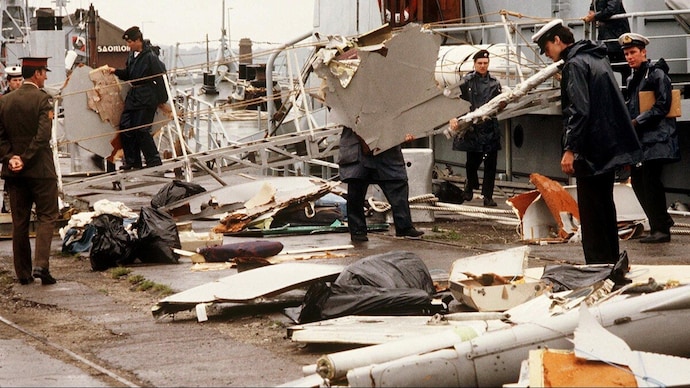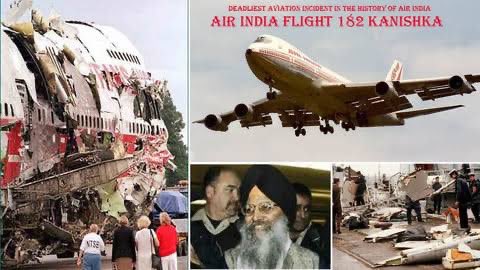Bombing of Air India Flight 182, Kanishka in 1985: 329 people on board & their families still longing for Justice!!!


The bombing of Air India Flight 182 Kanishka which occurred on June 23, 1985, is one of the deadliest terrorist attacks in aviation history. The flight, operating on the Toronto-Montreal-London-Delhi route, was destroyed by a bomb, resulting in the deaths of all 329 people on board, including 268 Canadian citizens.
Background and Incident
The bombing was carried out by Sikh militants advocating for the creation of an independent Sikh state known as Khalistan. The motive behind the attack was related to the ongoing conflict and unrest in Punjab, India, where there was significant tension between the Indian government and Sikh separatists. The bomb, planted in a suitcase, exploded in the cargo hold while the aircraft was over the Atlantic Ocean near the coast of Ireland.
Investigations and Legal Proceedings
The investigation into the bombing was extensive and complex, involving both Canadian and international authorities. The primary suspects were members of the Babbar Khalsa, a Sikh separatist group. However, the investigation was marred by issues such as mishandling of evidence, lack of cooperation among agencies, and procedural errors.
Key Figures and Outcomes: Pierre Trudeau’s Stance
Pierre Trudeau, who was Prime Minister of Canada at the time, did not take definitive actions to extradite the suspects or facilitate their prosecution outside of Canada. This stance has been a point of contention and criticism, as it was seen as a failure to seek justice for the victims.
Legal Outcomes
Despite lengthy investigations and legal proceedings, most of the accused were acquitted.
In 2005, Ripudaman Singh Malik and Ajaib Singh Bagri, the two main suspects, were acquitted of all charges. Another key figure, Talwinder Singh Parmar, believed to be the mastermind, was killed in India in 1992 without facing trial.
Impact on Victims’ Families
The failure to convict those responsible has left many families of the victims, including Amarjit Kaur, widow of Captain Satwinder Singh Bhinder, who was the pilot of the ill-fated flight, in a state of perpetual grief and a quest for justice. Captain Bhinder, a former Indian Air Force pilot, was among the crew members who lost their lives in the bombing. His widow, Amarjit Kaur, along with other families, continues to seek justice and recognition for the tragedy.
Reflection and Legacy
The Air India bombing has had a lasting impact on Canada, leading to significant changes in aviation security and counter-terrorism policies. It also highlighted the challenges of international terrorism and the complexities of bringing perpetrators to justice across different legal and political systems.
Continued Quest for Justice
To this day, many of the victims’ families feel that justice has not been served. They continue to advocate for further investigation and accountability, hoping that one day those responsible will be held to account. The memory of the tragedy remains a somber reminder of the consequences of terrorism and the ongoing struggle for justice and closure for those affected.





